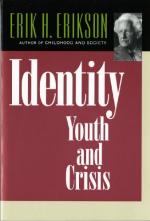
|
Chapter 1, Prologue
1. What does it mean when the author states, "to review the concept of identity"?
(a) Write an outline.
(b) Give a lecture.
(c) Sketch its history.
(d) Disprove identity.
2. What is the definition of "identity" subject to?
(a) The future.
(b) The individual.
(c) The researcher.
(d) Changes in history.
3. Because the terms "identity" and "identity crisis" are used in such a variety of situations, what have these terms become?
(a) Ritualized.
(b) Well-defined.
(c) Embedded in society.
(d) Coined.
4. What does William James state is discernible in mental or moral attitudes?
(a) Character.
(b) History.
(c) Culture.
(d) Family.
5. What does Freud's consciousness of inner identity include?
(a) Conflict.
(b) Love.
(c) Peace.
(d) Bitter pride.
6. Erikson feels that Freud's intellect is a gift that stems from what?
(a) A hostile limitation of opportunities.
(b) Good genes.
(c) A strong identity.
(d) A good education.
7. What does Freud suggest a fearless freedom of thinking is?
(a) Negative identity.
(b) Positive identity.
(c) Totalitarianism.
(d) Unattainable.
(read all 180 Multiple Choice Questions and Answers)
|
This section contains 4,568 words (approx. 16 pages at 300 words per page) |

|




